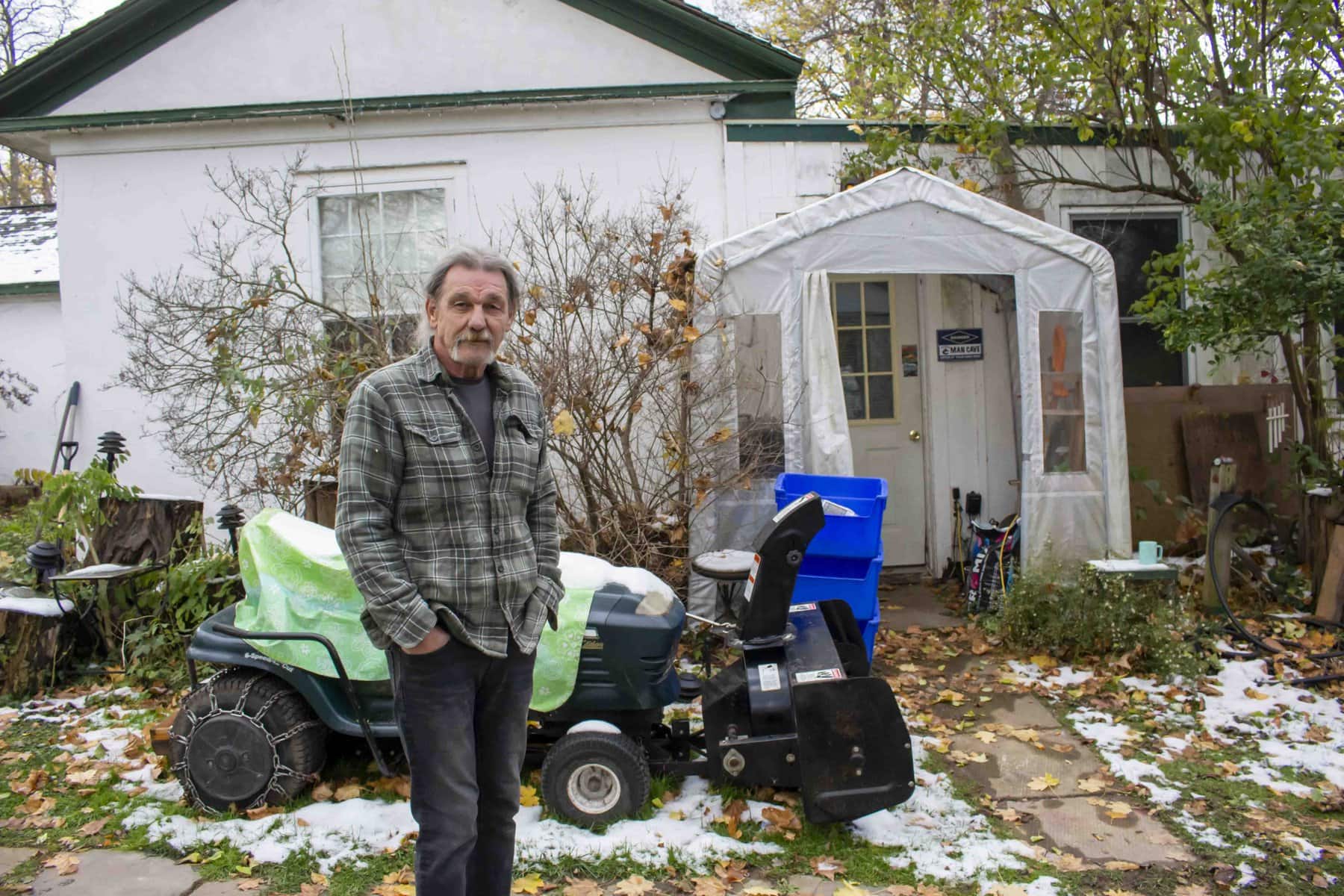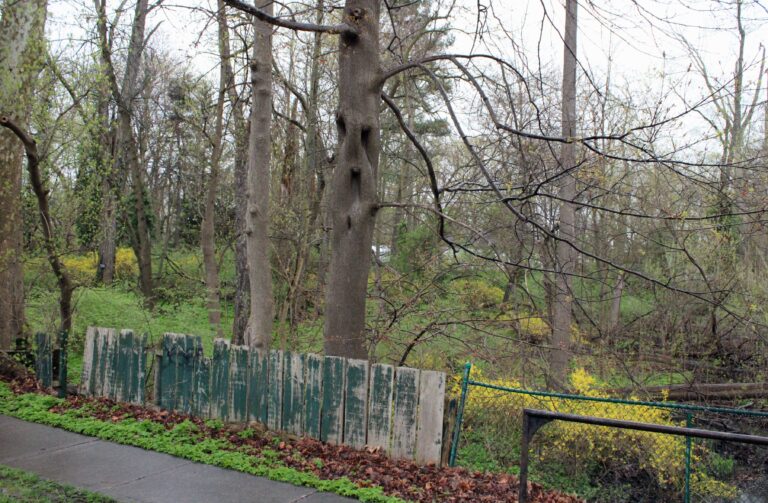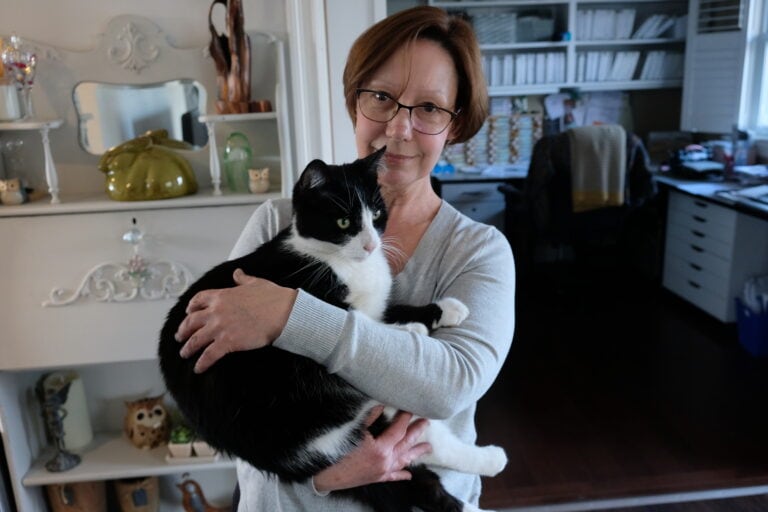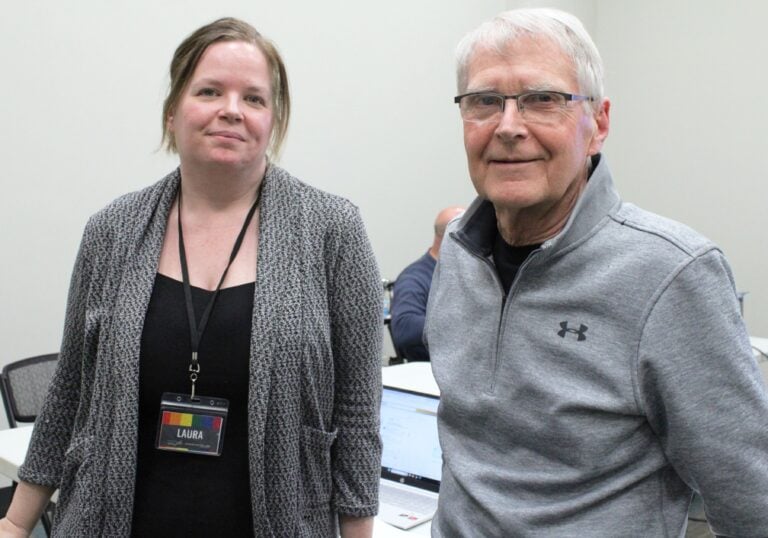The King Street property known as “The Wilderness” is an urban oasis and Ken Reid, who lives on it, says he is confused why the Niagara Foundation worries he might sell it for redevelopment.
The 5.5-acre heavily wooded site at 407 King St. is tied up in a legal dispute between Reid and the foundation, which claims it was gifted a half-interest in the property via former co-owner Ruth Parker’s will.
In an opinion piece published in The Lake Report last week, Niagara Foundation president Lyle Hall, speaking on behalf of the organization, said the site needs to be properly maintained and expressed concerns about it being sold and redeveloped.
Reid said that will never happen and disputes the foundation’s assertion that it has a legal claim to half of The Wilderness.
“In my ideal world, it would go to somebody who would appreciate it for what it is,” Reid, well-known in Niagara-on-the-Lake as the town’s former animal control officer, said in an interview.
He has been living there for nearly 25 years.
“For them to say all I want is to sell it to a developer is ludicrous,” he said.
When Reid’s feelings were shared with Hall, he acknowledged he may have made an unfair assumption when he wrote that Reid might want a “development exit.”
The Niagara Foundation is concerned about signs of deferred maintenance first uncovered by heritage consultant Jon K. Jouppien, who inspected the property in 2018.
Neither Jouppien nor the Niagara Foundation provided a copy of the inspector’s report.
Hall said he could not share it due to a copyright restriction.
Parker, who was an aunt of Reid’s late wife, owned a 50 per cent share of the property when she died in 2013.
She wrote in her will that she wanted the heritage of the property to be preserved and tasked her trustee to assign preservation of the property to an appropriate organization.
“It is my wish and desire, without imposing any obligation on my trustees, that the said property (407 King Street) be preserved in its entirety and specifically, that the heritage elements, as have been or as may be found to exist by the Ontario Heritage Foundation (sic.), or similar agency, be preserved,” reads an amendment attached to the will called a codicil obtained by The Lake Report.
The executor, lawyer Peter Janzen, selected the Niagara Foundation to follow Parker’s wishes.
Reid inherited half-interest in the property from his deceased wife Kea Reid, who in turn inherited from her mother Fran McKay, who was Parker’s sister.
He rejects the foundation’s claim to 50 per cent ownership because he thinks the executor’s interpretation of the will is inaccurate.
He added the executor has failed to settle the estate in a timely fashion, which is his legal obligation.
The will does not specifically name the Niagara Foundation as the body best suited for executing Parker’s dying wishes.
“She (Parker) wanted to ensure that The Wilderness had heritage protection and that it was left up to the lawyer to decide how best to do that,” Reid explained.
In a conversation outside his home, Reid was puzzled why the property needed additional protection given its heritage designation.
In an interview, Coun. Gary Burroughs said heritage designations are more of a “delay tactic” and that while the heritage committee can make requests from people with plans to renovate heritage properties, it cannot guarantee compliance from the property owners.
Hall pointed out that neither party walks away with the whole property, regardless of how the courts rule on the issue.
Reid will not inherit the 50 per cent share left behind by Ruth Parker, even if the courts rule the foundation has no claim to it, Hall said.
Asked about this, Reid said he was trusting his lawyers to figure it out in court. Reid initiated the legal action in 2018, Hall said.
Reid has rejected an offer from the Niagara Foundation to purchase his share of the property before the court rules on the legitimacy of its claim to Parker’s half.
He did not disclose how much the foundation offered for his ownership stake, but described it as “well below the property value.”
“It was basically just an insult offer,” he said.
Hall said the foundation is not in the business of making “silly offers,” but that the foundation expects to repair the property and these expenses need to be considered as part of the offer.
“My trustee shall not be required to sell the property at fair market value,” the codicil says.
Hall also wouldn’t say how much the Niagara Foundation offered Reid for his share.
Reid argued that nobody who owned the property would accept less than market value.
According to Hall, Reid has not allowed the foundation onto the property to assess its need for repairs and so the organization can only speculate on how much they might cost.
Reid also said the heritage committee was wrong when it described the property in a state of disrepair.
He estimates he has spent about $15,000 renovating and repairing the property since his wife died.
Reid acknowledged though that as he gets older it becomes harder to maintain.
“There’s also a lot of taxes, maintenance, upkeep. I’m 70 years old and it’s getting harder to stay on top of it,” he said.
Hall said the property has been in need of additional maintenance for as long as he’s been in town and pointed to the property’s many downed trees as evidence of its state.
Reid argued downed trees are a natural feature of forested properties and said the town ordered him to cut down some of the more problematic ones.










